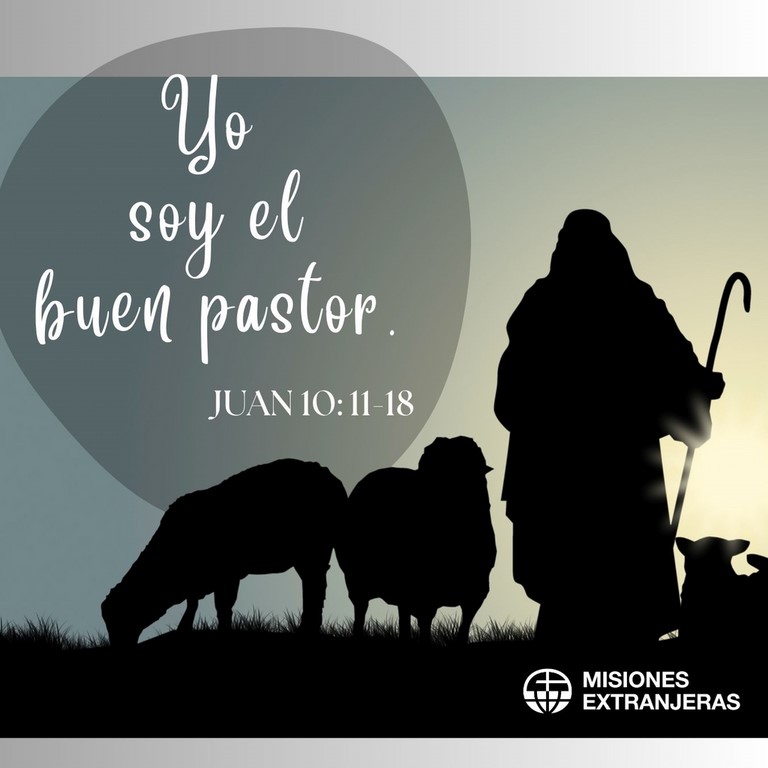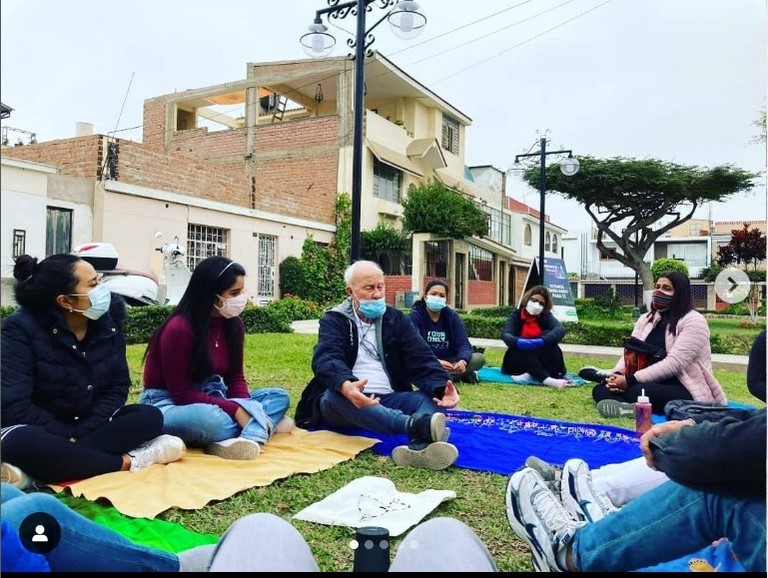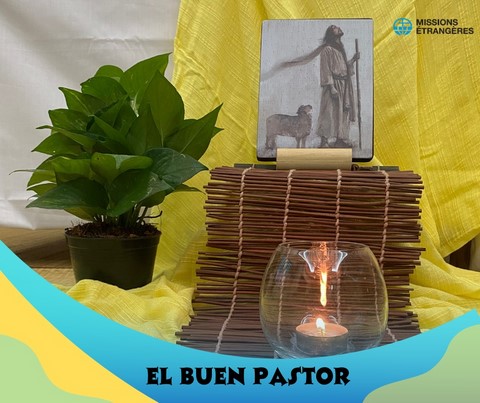Jesus, the Good Shepherd
Jesus, the Good Shepherd: A Call to Youth Vocation
Jesus, the Model Shepherd
This fourth Sunday of Easter (2024), we remember Jesus, the Good Shepherd, and celebrate the World Day of Prayer for Vocations. On this day, we recall Jesus as the model of the Shepherd, who cares for, guides, protects, and defends his sheep (John 10:11-18). Jesus knows each of his sheep by name, and as Pope Francis says, each sheep is a mission in this world!
Called to sow hope and build peace
Pope Francis, in his message for the World Day of Prayer for Vocations 2024, calls us to sow hope and build peace. This call coincides with the Sunday of the Good Shepherd, and reminds us that, in the image of Jesus, we are called to care for and protect the smallest and most vulnerable, the discarded from the peripheries of this world.
Jesus, the Source of Life
The figure of the Good Shepherd, so central in the Christian tradition, seems distant in our modern and technological societies. How difficult it is for us to appreciate the lilies of the fields that clothe themselves in a beauty much greater than that of Solomon! Moreover, the image of being sheep led to a sheepfold has become very negative. Jesus did not build sheepfolds. On the contrary, by identifying himself as the door, he invites us to break down every door, gate, wall, division. He invites us to go out and live in the freedom of the children of God.
Jesus is the way that leads to Life, he is the door always open to the banquet of the Kingdom, where the community is concentrated. He who listens to the voice of the Good Shepherd identifies with him; he who drinks his blood and eats his flesh identifies with him: he adopts his way of thinking, acting, and living. If Jesus is the bread of Life, it is not because we eat it but because we let ourselves be eaten.
How to recover the figure of the good shepherd?
The figure of the Good Shepherd is a powerful metaphor that can be relevant in our modern, increasingly technological society. Although we live in an increasingly technologically advanced world, the fundamental principles of care, protection, and guidance represented by the Good Shepherd remain vital. Pastoral societies, defined by their main economic activity of pastoralism, are an example of community life and mutual care. These groups, often nomadic, focus on caring for their flocks, showing a flexible social organization that adapts to available resources.
A contemporary example of this practice is the Masai tribe in Kenya, where shepherds risk their lives to protect the sheep, which are considered part of the family. They never abandon them, even if they have to face lions and other wild beasts. This level of commitment and care is a powerful example of what it means to be a good shepherd.
To recover the figure of the Good Shepherd, we must focus on guidance, not through authority or rigor, but through love and mercy. Just like the shepherds in Luke's story, we must be willing to care for and protect those under our care, no matter what challenges we face.
Knowledge and love
In the biblical tradition, knowledge and love always go together. "I know my sheep," Jesus says, "and they know me." This mutual knowledge is a deep and intimate relationship. Who knows, loves. And love neutralizes everything that paralyzes us, disintegrates guilt, casts out fear. This intimate and deep relationship between the shepherd and the sheep, a relationship of communion and tenderness, is very different from certain devotions centered on the authority of the shepherd and the submission of the sheep.
A message for young people
Pope Francis has a special message for young people, especially those who feel distant or mistrustful of the Church: let yourselves be fascinated by Jesus, ask him your fundamental questions. In our time, it is therefore decisive that we Christians cultivate a gaze full of hope, so that we can work fruitfully, responding to the vocation entrusted to us, in the service of the Kingdom of God, the Kingdom of love, justice, and peace.
Rise up and discover your vocation
Pope Francis concludes his letter for the World Day of Prayer for Vocations 2024 with a call to awaken: "Rise up!" He encourages us to wake up from sleep, to come out of indifference, to open the gates of the prison in which we so often shut ourselves, so that each of us can discover our own vocation in the Church and in the world and become pilgrims of hope and artisans of peace.
In summary, this World Day of Prayer for Vocations is an opportunity to reflect on our call to follow Jesus, the Good Shepherd, and to discover our own vocation in the Church and in the world. It is a call to sow hope, to build peace, and to care for and protect the most vulnerable. It is a call to awaken, to come out of indifference, and to become pilgrims of hope and artisans of peace.



